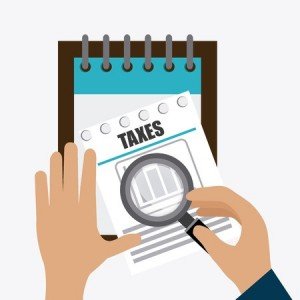NYC To Put 3,000 Landlords On Notice: Comply With Law or Lose Tax Benefits

At a City Council hearing last Tuesday, city officials said they are now hammering out a memorandum of understanding that will undo that old policy. It led to thousands of properties collectively receiving millions in savings under the city’s controversial 421-a tax break without showing that they met basic program requirements, such as restrictions on rent increases.
“The MOU will basically indicate that folks need to comply,” said Timothy Sheares, deputy commissioner at the Finance Department.
The 421-a program now forgives about $1.4 billion a year in property taxes for newly built residences for up to 25 years. But landlords are only supposed to get the benefit if they agree to subject their apartments to limits on rent increases and other tenant protections, known as rent stabilization.
Many don’t: A ProPublica investigation in October found nearly two-thirds of the almost 6,400 rental properties paying reduced property taxes do not have an approved application on file with the city Finance Department. That’s because most of the landlords don’t bother to register their apartments for rent stabilization with the state as mandated by law, potentially leaving thousands of renters in the dark about their rights and at risk of over-charges or eviction.
Under the steps outlined at the City Council hearing, the Finance Department will send notices to owners of approximately 3,000 properties for which approvals were never issued. The owners will be given until Jan. 5, 2018 to be approved for the program or have their benefits suspended. After that, the Department of Housing Preservation and Development will determine whether to revoke benefits.
The department will also report revocations annually to the City Council and, for the first time, publish a 600-page, legally required report on rents charged in 421-a buildings. Annual reviews may also become part of the compliance effort, as department officials backed two City Council bills mandating audits of at least 20 percent of buildings receiving benefits to ensure they follow the rules.
Louise Carroll, the department’s associate commissioner for housing incentives, said annual audits sounded “feasible” and pledged “ongoing compliance” efforts. In testimony submitted to the Council, the Real Estate Board of New York — the industry’s main trade group — said it supports auditing, but cautioned that landlords should have the opportunity to fix any problems before penalties are assessed.
“Revocation of benefits is an excessive penalty for these types of non-compliance and should be reserved for those instances where an owner has engaged in willful and illegal activity,” the group said.
Carroll acknowledged that, prior to Mayor Bill de Blasio’s administration, oversight of the 421-a tax break had been lacking. For the first time, city officials explained why. In 2003, Sheares said, the city’s housing and finance arms reached an “informal agreement” to ignore a law requiring developers to obtain a certificate of approval for the 421-a program before receiving tax breaks on newly constructed buildings. Instead, the agencies agreed to extend tax benefits obtained during construction for up to 25 years and let owners worry about getting the approval later.
Representatives of the city agencies said some landlords had complained about an interruption in benefits after construction was completed if they didn’t obtain the approval. The “unfortunate legacy” of that decision was that thousands of landlords took the tax savings and didn’t bother to get the approval, “which means we have not had an opportunity to view their rent registration,” Carroll testified.
If the city’s past enforcement initiative is any indication, few owners are likely to take up the offer to voluntarily get into compliance. An August 2015 enforcement effort against 285 buildings yielded three small owners who voluntarily got into compliance, Carroll said. The city is now seeking to revoke benefits from 178 and has already done so for 35 buildings collecting about $4 million of tax benefits, she said.
Julissa Ferreras-Copeland, chair of the City Council Finance Committee, asked the agencies to revoke benefits retroactively for periods during which landlords ignored the rules. “That is our intention,” said Finance Deputy Commissioner Sheares.
Responsibility for monitoring rents in 421-a buildings also falls to a third agency, the state’s Division of Housing and Community Renewal. A panel of tenants from one building we profiled in December 2015, 125 Court Street in Brooklyn, testified it’s been hard to get either the city or the state housing agencies to help them because one keeps passing the buck to the other. Their council member, Stephen Levin, who also co-sponsored the auditing proposals, read aloud a letter he got from the state agency when he asked it to investigate the building.
“You may want to pursue the matter with HPD first to ensure that all rents have been properly set,” the agency wrote, referring him to the city’s Department of Housing Preservation and Development. The state housing agency did not respond to a request for comment on the letter.
“I was kind of like a ping pong ball between two ping pong paddles,” Levin said.
Source: patch.com















 Accessibility
Accessibility